Written by Tanay Pingle
For decades, two major firms have held an iron grip over the airplane manufacturing industry: Boeing and Airbus. Boeing currently maintains a 40.6% market share, while Airbus dominates the other 60.4% of the industry. Both of these firms hold incredible leverage over the entire airline industry, allowing them to maintain a somewhat relaxed relationship with oversight bodies like the FAA. Until recently, this hands-off relationship posed no problems for the average consumer; a 2023 report from the International Air Travel Association indicated that airline passengers are currently in the midst of the safest decade of air travel ever (Said, 1). And yet, over the last 5 years, Boeing has been under scrutiny for countless technical failures in their 737 Max 9 line of commercial aircraft. Furthermore, the FAA’s neglect in properly managing Boeing has brought forth concerns about how sustainable this duopoly is. Amidst growing controversy regarding other airline manufacturers, the Commercial Aircraft Corporation of China (COMAC) has made efforts to begin entry into the US market. As a state-owned aerospace manufacturer, COMAC’s entry into this duopoly raises concerns about the increasing influence of foreign powers on domestic industry. However, COMAC also serves as a prime opportunity for the airline industry to properly regulate itself and return to form.
In order to see why COMAC’s attempt to break up the Boeing-Airbus duopoly could be promising, it’s important to understand the context behind the issue. Boeing’s recent technical failures include two crashes in 2018 and 2019 that resulted in the deaths of 346 people, as well as a recent incident where a door came off an Alaskan Airlines flight mid-air. Despite the FAA’s best efforts to launch an internal investigation, many were quick to point out that Boeing’s extensive history of lobbying with the FAA played a part in the disastrous neglect that resulted in these accidents. Independent magazine Jacobin reported that “Since 2020, Boeing has spent nearly $50 million lobbying Congress, the White House, the FAA, and a slew of other federal regulators on issues including aviation safety, aircraft certifications, COVID relief money, weapons sales, and space exploration, disclosures show” (Schwenk, 2). Many of these lobbying initiatives stopped legislation that would’ve brought Boeing’s technical issues to light much sooner or outright prevented future accidents. Boeing is able to exercise such a significant amount of power precisely because they are one of only two suppliers worldwide that are able to meet the needs of major airlines. Furthermore, the complex mechanical nature of planes ensures that airlines must regularly deal with manufacturers like Boeing, making them irreplaceable in the airline supply chain. Without Boeing, the airline industry would functionally collapse, which is why the FAA allows Boeing to skirt the lines of legality when dealing with regulatory issues.
The key issue that allows Boeing to maintain their market power is a lack of competition; Both Boeing and Airbus are relatively similar in terms of sales, leading to overall stagnation in the market. The A320 and Boeing 737 families of aircraft have also been in use for decades, and airline executives looking to minimize already exorbitant operating costs would see no reason to change to a potentially new and unreliable supplier. COMAC’s initial launch with GallopAir, a Brunei-based airline, illustrates both the advantages and disadvantages of a new supplier. Because of COMAC’s state-owned status, they are able to offer unique financial advantages that have led them to target relatively small airlines initially. Cham Chi, CEO of GallopAir, stated that “As a customer and operator of China’s Comac products, we can get financial support from China’s import-export bank, and also central banks” (Anwar, 1). As of right now, most of COMAC’s customers are domestic carriers and Chinese airline leasing companies, which has allowed them to leverage their financial backing and expand across Southeast Asia. However, US-based airlines or other established players wouldn’t have as much demand for financial support, and would actually see COMAC’s efforts as malicious due to possible conflicts of interest with the Chinese government.
Many oversight committees skeptical of COMAC’s relatively ambitious goals have brought to light issues over the manufacturing process of COMAC’s airplanes. According to a representative from the Royal Aeronautical Society, “There’s nothing in the ARJ21 or the C919 from China that keeps those planes in the air” (Dron, 1). However, representatives of COMAC have stated that while this was true early on in development, the manufacturing process is slowly transitioning away from outsourced materials. COMAC’s shift away from outsourcing is promising, especially considering that Boeing’s quality issues were linked to its overly convoluted supply chain consisting of over 50 suppliers (Banker, 1). Despite the slew of positive developments, it’s simply too early to tell if COMAC will be able to compete with Boeing-Airbus. For now, COMAC is reliant on capturing the domestic Chinese and Southeast Asian markets in order to establish market power before competing with Boeing and Airbus. If COMAC is able to establish itself internationally, there could be a chance at industry reform. However, the sheer scale of such an operation implies that as promising as COMAC seems, a future without a Boeing-Airbus duopoly might still be a couple of years away.
References
Anwar, Nessa. Can China’s Comac Break up the Airbus-Boeing Duopoly? 2024.
Banker, Steve. “Boeing Is Haunted by Two Decades of Outsourcing.” Forbes, 12 Feb. 2024, https://www.forbes.com/sites/stevebanker/2024/02/12/boeing-is-haunted-by-two-decades-of-outsourcing/?sh=208c689c64a1.
Dron, Alan. “Can China Break into the Airliner Duopoly?” Royal Aeronautical Society, https://www.aerosociety.com/news/can-china-break-into-the-airliner-duopoly/. Accessed 12 Apr. 2024.
“IATA Annual Safety Report.” Iata.org, https://www.iata.org/en/publications/safety-report/. Accessed 12 Apr. 2024.
Schwenk, Katya, et al. “Before the Boeing Disaster, the Company Lobbied Lawmakers to Deregulate Airplane Safety.” Jacobin.com, https://jacobin.com/2024/01/boeing-spirit-safety-regulations-airlines. Accessed 12 Apr. 2024.


